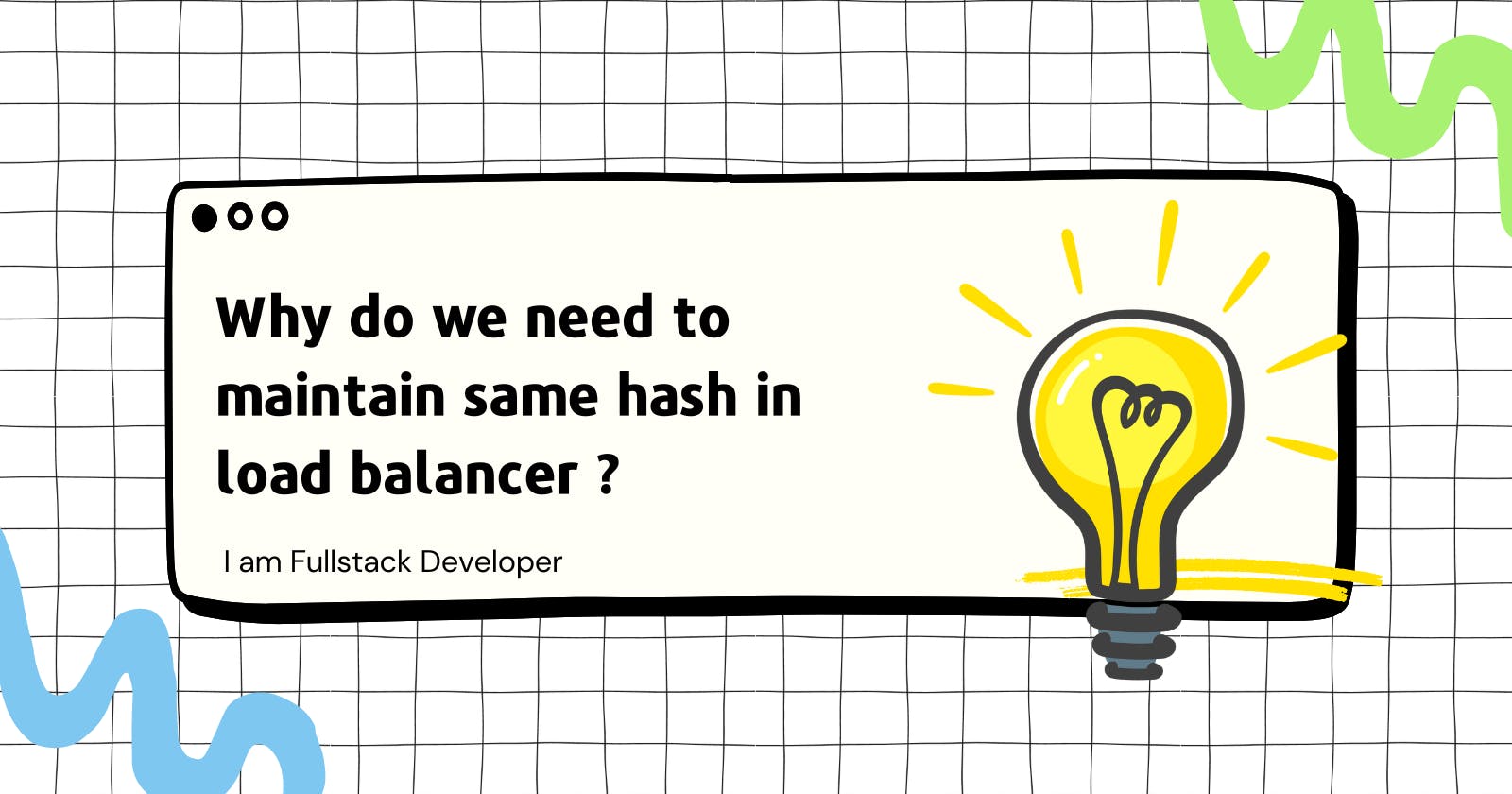Introduction
Have you ever thought of what is that ? when developers discuss like add a server; we need to scale up; we can scale down; implement a load balancer to equally share the request. In this blog post, we can go from basic methodologies in designing a solution where we equally distribute the request to the n servers in a distributed system.
What is Hash Function ?
A hash function is a function that maps one piece of data typically describing some kind of object, often of arbitrary size to another piece of data, typically an integer, known as hash code, or simply hash.
Lets create a simple hash function to take ip and give an integer back,
def hash_the_value(value):
value = value.replace(".", "")
value = int(value)
return value % 12 # This can be any constant number
sample_ips = [
'192.168.0.18',
'192.168.0.19',
'192.168.3.38'
]
for sample_ip in sample_ips:
hash_value = hash_the_value(sample_ip)
print(sample_ip, hash_value)

Till now, we have seen what is an hash function. Now let's see the problem.
Problem Description
Consider we are having our application installed in 4 servers. Now we want to split the requests between these 4 servers almost equally, so that every servers are equally loaded (more efficient).
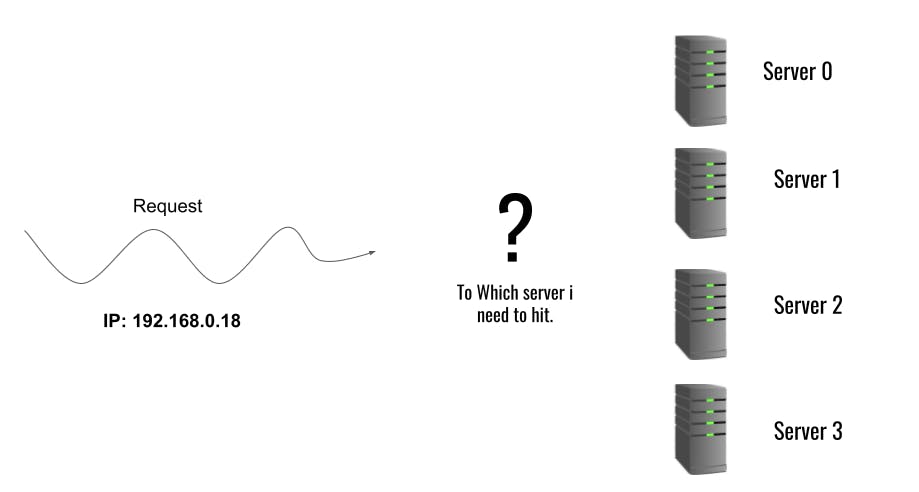
Naive Solution
We need to split the request to different servers; so we need to have some distribution logic We can define the distribution logic (Load Balancer) like below,
Logic:
hash_of_ip = hash_the_value(ip) # our python function at top
total_server = 4
server_no_to_hit = hash_of_ip % total_server
Now let's see with a single request,
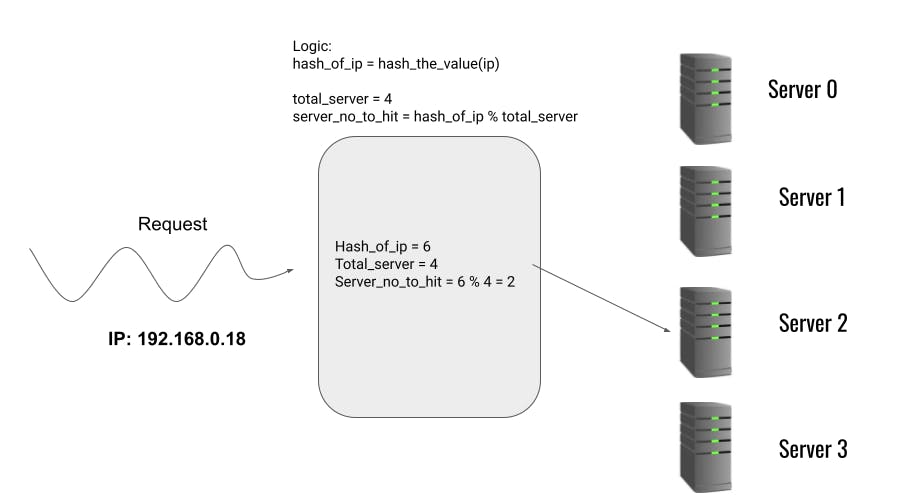
Now lets see with multiple requests,
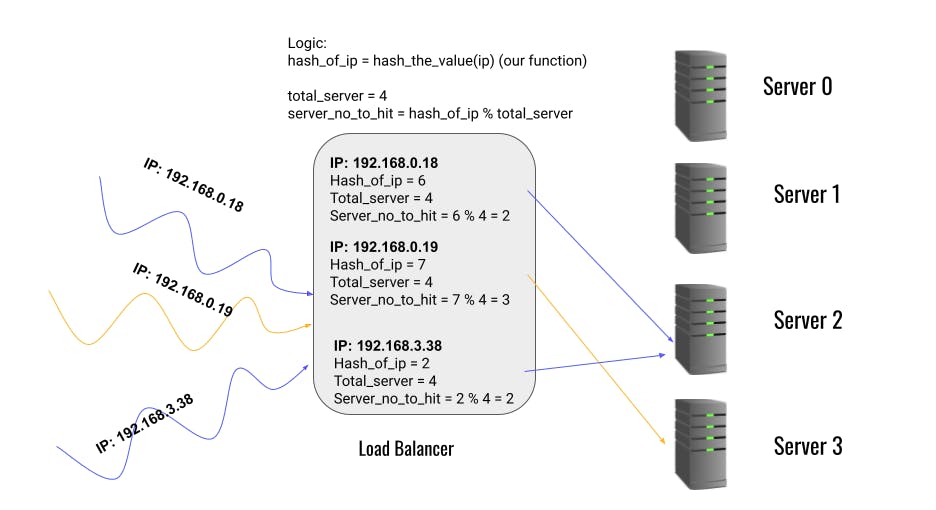
Problems
This seems to be solve the problem right. Do you see any problem here ?
What will happen if i removed a server ?
What will happen if i added one server ?
At both of the scenarios, our hash value for a particular will be changing which may lead to hoping to another server. Let's witness the change.
Adding a new server
Initially we had 4 servers, now we add one more. So now totally we will have 5 servers.
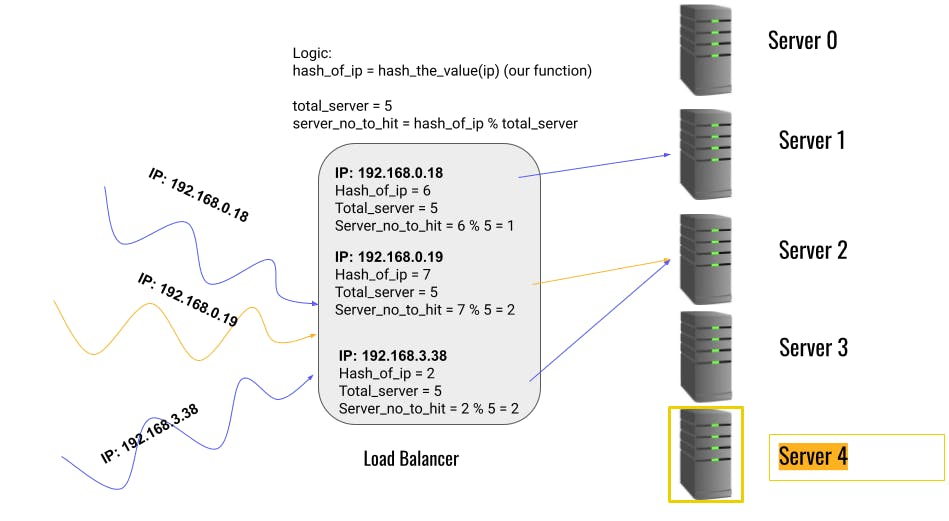
IP: 192.168.0.18
Previous
total_server = 4
hash_of_ip = 6
server_to_hit = hash_of_ip % total_server = 6 % 4 = 2
After adding one server
total_server = 5
hash_of_ip = 6
server_to_hit = hash_of_ip % total_server = 6 % 5 = 1
It changed from server 2 to server 1.
IP: 192.168.0.19
Previous
total_server = 4
hash_of_ip = 7
server_to_hit = hash_of_ip % total_server = 7 % 4 = 3
After adding one server
total_server = 5
hash_of_ip = 7
server_to_hit = hash_of_ip % total_server = 7 % 5 = 2
It changed from server 3 to server 1.
IP: 192.168.3.38
Previous
total_server = 4
hash_of_ip = 2
server_to_hit = hash_of_ip % total_server = 2 % 4 = 2
After adding one server
total_server = 5
hash_of_ip = 2
server_to_hit = hash_of_ip % total_server = 2 % 5 = 2
It remains same.
When simple hashing breaks
When we add or removed a server we need to do a lot of shuffling and data transfers.
The cost of shuffling the data is huge and its not efficient with auto scaling.
The Need of stable solution
Now we need to think about a hash algorithm which is consistent at almost all the time. So the birth of consistent hashing evolved. We will see more about consistent hashing in upcoming posts.

